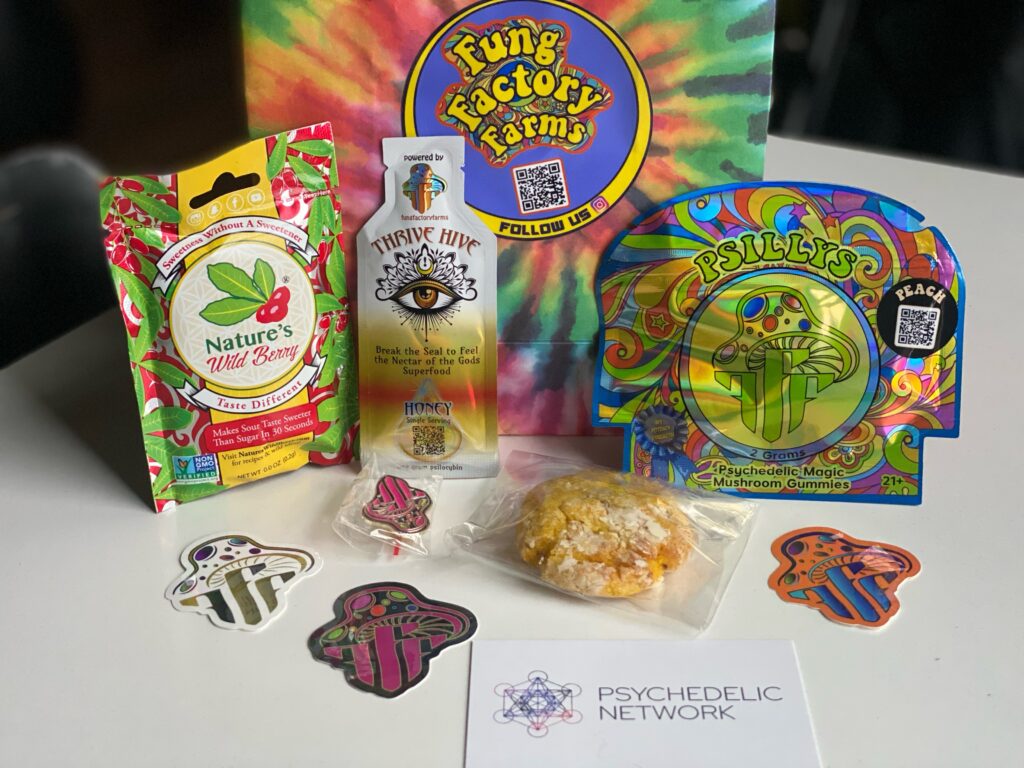Exploring the Potential Impact of California’s Psychedelic Decriminalization Bill on the Plant Medicine Industry

Will California become the third State to decriminalize psychedelics? While cities within California have previously moved to decriminalize the use of psychedelic substances, the State as a whole has yet to approve any such legislation.
In a groundbreaking stride for the plant medicine industry, California is on the verge of implementing a psychedelic decriminalization bill. Earlier this year, Senator Scott Weiner introduced Senate Bill 58 (SB 58), which aims to decriminalize various psychedelic substances in the State of California.
Advocates of SB 58 highlight the therapeutic potential of psychedelics, particularly psilocybin, in treating various mental health conditions, including depression, anxiety and PTSD. One of the most promising studies conducted by Johns Hopkins Medicine shows that psilocybin use decreases anxiety in patients with advanced-stage cancer. Another recent study suggests that just two doses of psilocybin treatment for major depression disorder may be effective for up to a year.
As business owners and pioneers in the plant medicine space, the implications are monumental. It’s not just about decriminalization– it’s about recalibrating our relationship with these substances, understanding their potential and nurturing an environment of education and responsible usage.
Psychedelic Law and the War on Drugs
To understand the significance of SB 58, we must rewind the tape of history to an era defined by the War on Drugs– a campaign that casts a long shadow over psychedelic substances. Despite being considered a pathway to altered states of consciousness and introspection, psychedelics were swept into a net of criminalization alongside substances like heroin and cocaine.

US President Richard Nixon’s war dog: Henry J. Anslinger used racially divisive campaigns and pseudoscience to instigate the “war on drugs” in the late 60s early 70s forcing countless minorities into the criminal “justice” system.
The echoes of the past reverberate in the present, reminding us of a time when misconceptions and stigma overshadowed psychedelics’ therapeutic and cultural potential. The War on Drugs criminalized possession and dampened the scientific community, leaving a void in our understanding of these compounds’ and the potential benefits they carry.
As a result, the plant medicine community found itself grappling with restrictions that hindered both progress and exploration. Furthermore, those seeking therapeutic relief were deemed criminals and forced to risk their lives and freedom to consume healing plant medicines.
Fast forward to today, and we find ourselves at a turning point. SB 58 signals a departure from the past, offering an opportunity to reevaluate our approach, challenge misconceptions and embrace the potential of psychedelics for personal growth, therapy and beyond.
What is Senate Bill 58?
The story unfolds with a spirit of openness and evolution, much like the ethos that has characterized California’s progressive journey. Just as Prop 64 was a paradigm shift for the cannabis culture, SB 58 is a revelation for the realm of psychedelics.
If you’ve been following the psychedelic movement over the years, you know this isn’t the first time we’ve seen a bill like this come into play. In 2022, a similar bill (SB 519) was criticized by skeptics and quickly squashed by politicians. While losing SB 519 may have seemed like a setback at the time, it provided advocates and policymakers with invaluable insight.
The Senate just passed our bill (SB 58) to decriminalize possession & use of 5 naturally occurring psychedelics — psilocybin, psilocin, DMT, ibogaine, mescaline.
— Senator Scott Wiener (@Scott_Wiener) May 24, 2023
These substances aren’t addictive & show promise in treating mental health /addiction. Let’s stop criminalizing them.
This time, Senator Scott Weiner has made significant changes with the introduction of SB 58 that may influence the public and politicians to vote in favor of the bill. Unlike SB 519, the new bill excludes synthetic substances such as LSD and MDMA. Additionally, the amended SB 58 requires the CA Health and Human Services Agency to create a research group to continuously study and enforce a framework for the therapeutic use of psychedelics. The bill outlines stringent frameworks for possession, consumption, cultivation, and medical application to ensure that the therapeutic potential of these substances is harnessed safely and responsibly.
While it’s too early to say the bill will make it through the legislative process, it has made significant progress since its inception in May of this year. As of last month, SB 58 has passed the California State Assembly Health Committee and moved to the Assembly Appropriations Committee for review. On August 16th, the Assembly placed the bill on suspension file, making it one step closer to final approval. It is believed that a final decision by the CA Assembly will take place on September 1st, 2023. If approved, the bill will be sent to Governor Gavin Newsom for a final review, and as of now, it is unclear where Newsom stands on the matter.
A Paradigm Shift in the Plant Medicine Industry
The potential benefits of Senate Bill 58 ripple across various facets of society. Imagine a future where these substances are no longer confined to the shadows but are explored and harnessed for their potential to alleviate mental health challenges. A world where humans have access to nature’s pharmacy. A world where researching plants doesn’t result in criminal convictions.
Let’s unwrap the potential benefits that this bill could unleash:
- Therapeutic Frontiers Unveiled: For decades, psychedelics have been subjected to stigmatization and legal restrictions, limiting their exploration for therapeutic purposes. The bill’s passage could signal a sea change, enabling researchers to dive deeper into the potential benefits of these substances. Patients suffering from mental health conditions could have access to alternative treatments, potentially revolutionizing psychiatric care.
- Access to Affordable Mental Health Care: With the potential therapeutic benefits of psychedelics becoming clear, SB 58 paves the way for more affordable and accessible mental health care options. Individuals grappling with conditions like depression, anxiety and PTSD might find alternative paths to healing that prioritize their well-being over financial strain. Additionally, it would allow patients to cultivate their own medicine for a fraction of the price of Western healthcare.
- Relief for the Criminal Justice System: For years, minor drug offenses, including possession of psychedelics, have unnecessarily clogged courts, strained law enforcement resources and perpetuated a cycle of incarceration that offers little in the way of rehabilitation. With SB 58 in place, resources could be better directed toward more pressing matters, alleviating the strain on the system and fostering a more balanced approach to law enforcement. Most importantly, individuals seeking mental health care relief could medicate themselves peacefully without worrying about becoming convicted criminals.
- Cultivation of Responsible Usage: By decriminalizing personal possession, SB 58 encourages a shift towards responsible and informed usage. Education and awareness programs can flourish, equipping individuals with the knowledge to approach these substances with caution, respect and mindfulness.
- Support for Entrepreneurs and Innovators: When it comes to business owners and entrepreneurs in the plant medicine space, Senate Bill 58 signals a new era of opportunity. The bill’s passage could foster an environment conducive to innovation, research-driven ventures and responsible business practices that elevate the industry’s reputation.
In essence, SB 58 isn’t just a legal revision–it’s a paradigm shift that has the potential to ripple across various sectors of society. Entrepreneurs, researchers, advocates, therapists and individuals alike can navigate this uncharted terrain, harnessing the bill’s benefits for a brighter, more informed and progressive future.
Navigating Regulatory Challenges
While the legalization of psychedelics will significantly open doors within the plant medicine industry, it also brings to light several regulatory challenges that must be addressed. One of the most pressing issues is establishing a robust regulatory framework that ensures the safe and responsible use of psychedelics.
Crafting regulations that strike a balance between personal freedom and public health is essential. Regulators must consider factors such as age restrictions, dosing guidelines, product quality standards and licensing for potential therapeutic use.
“…Too many initiatives are focused on legalizing psychedelics without considering how they may best be delivered to ensure safety and maximize efficacy.” Dr. Bill Richards wrote in @PsychToday about the necessity of therapy during psychedelic experiences.https://t.co/l78sAWKjVy
— Johns Hopkins Psychedelic Research Center (@JHPsychedelics) January 6, 2023
Drawing from the experiences of other jurisdictions that have navigated similar paths, California can develop a model focusing on harm reduction, education and controlled distribution.
Collaborative efforts between policymakers, medical professionals, researchers and the public will be pivotal in shaping regulations that maximize the benefits of decriminalization while minimizing any potential negative consequences.
Looking Into the Potential Future
SB-58 represents a significant stride towards the decriminalization of psychedelics in California. While the bill has the potential to unlock therapeutic benefits and alleviate the burden on the criminal justice system, it also raises valid concerns about public health and safety. As the decriminalization movement gains traction globally, balancing personal freedom, responsible use and regulatory measures to maximize the benefits while minimizing the potential risks is crucial.
The journey from criminalization to legalization requires careful navigation and a commitment to evidence-based policies. Inner Circle recognizes that responsible usage and education are vital components of this transformation. However, with a community of pioneers, experts and entrepreneurs united under the banner of progress, these challenges can be surmounted.
Inner Circle remains steadfast in its commitment to guiding entrepreneurs, business owners and pioneers in navigating the evolving landscape with foresight, empathy and purpose.








